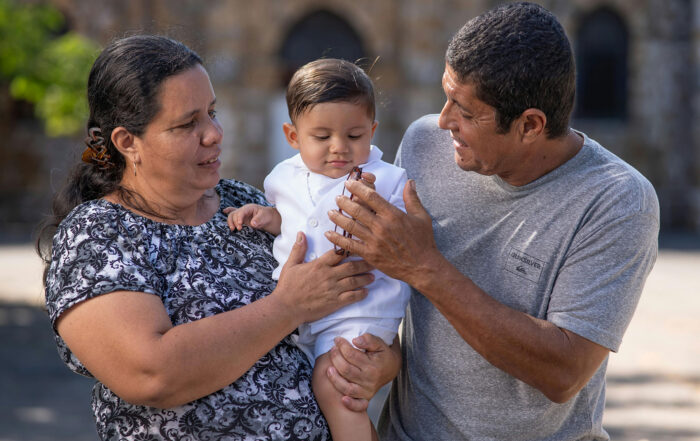
By Barbra Weidlein
Trauma settings
Music therapists have been called upon to support the recovery of individuals and communities following horrific events as well as natural disasters. Settings have included New York City metropolitan area after the 9/11 terrorist attacks; New Orleans after Hurricane Katrina; Umpqua Community College after a mass shooting on campus; various war- and post-war zones; and other disaster recovery situations.
According to the American Music Therapy Association, music therapy addresses trauma by providing:
• Non-verbal outlets for emotions associated with traumatic experiences
• Anxiety and stress reduction
• Positive changes in mood and emotional states
• Active and positive participant involvement in treatment
• Enhanced feelings of control, confidence, and empowerment
• Positive physiological changes, such as lower blood pressure, reduced heart rate, and relaxed muscle tension
“With individuals who have experienced trauma,” says Jim Borling, director of Radford University’s Music Therapy program, “music becomes an outlet for expressing emotion. Music therapy has a way of letting people know that it is ok to feel what you are feeling. It is ok to acknowledge what has happened.”
Borling brought his skills as a music therapist to Newtown, Connecticut where a 2012 shooting at Sandy Hook Elementary School took the lives of 20 children and six staff members, and to Virginia Tech (Virginia Polytechnic Institute and State University) after a campus shooting in 2007 killed 32 and injured many others.
Share This Post!
How Trauma Affects Kids in School
By Caroline Miller We tend to think of trauma as the result of a frightening and upsetting event. But many children experience trauma through ongoing exposure, throughout their early development, to [...]
10 Things About Childhood Trauma Every Teacher Needs to Know
By Starr Commonwealth With grief, sadness is obvious. With trauma, the symptoms can go largely unrecognized because it shows up looking like other problems: frustration; acting out; difficulty concentrating, following directions, or [...]
Music Therapy Addresses Trauma – Careers That Change Lives
By Barbra Weidlein Trauma settings Music therapists have been called upon to support the recovery of individuals and communities following horrific events as well as natural disasters. Settings have included New [...]
Healing from Childhood Trauma
By: E.B. Johnson When you experience childhood trauma, your life and your soul are altered forever. Those who suffer loss, abuse or neglect early-on in life can often suffer from serious psychological and [...]
The Effects of Childhood Trauma
By Amy Morin, LCSW Although adults often say things like, “He was so young when that happened. He won’t even remember it as an adult,” childhood trauma can have a lifelong [...]
Oprah Reports on Childhood Trauma with Dr. Bruce Perry
By Amanda Merck Oprah Winfrey is raising awareness about childhood trauma and the need for trauma-informed care. Childhood trauma—like abuse, neglect, and poverty—changes a child’s brain, body and behavior. Behavior is often [...]







